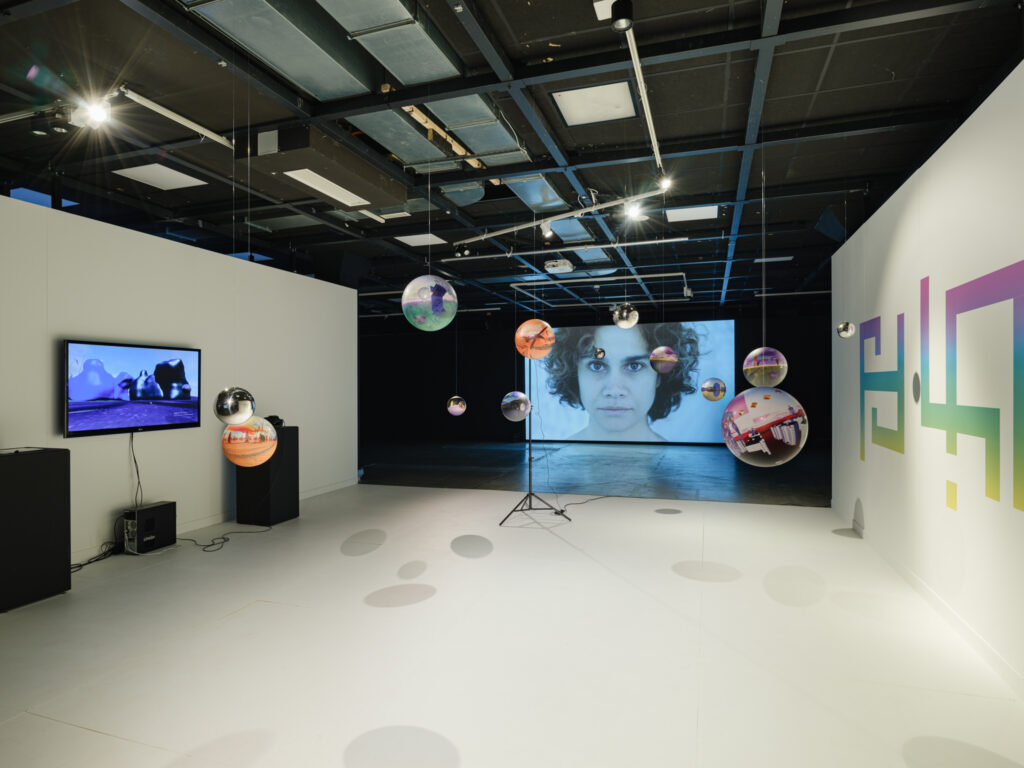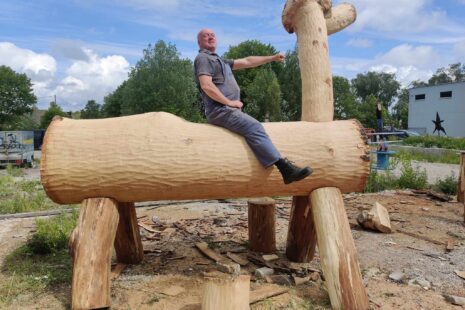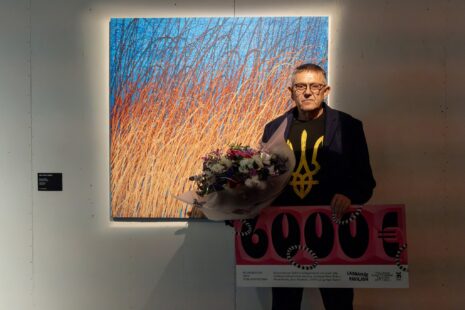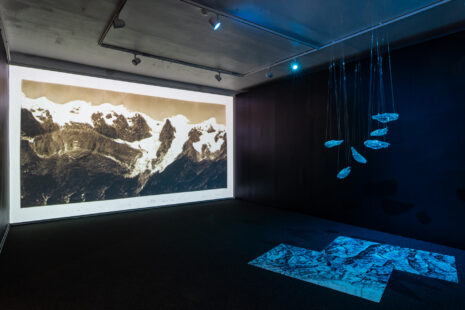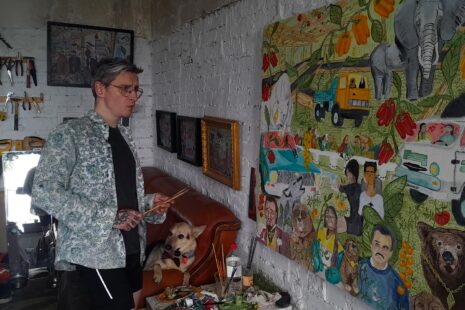Riga Photography Biennial 2024 is being held for the fifth time and focuses on contemporary issues of identity – both the essence of human and the role of the image in the face of the challenges of the 21st century.
Until 16 June the central event of the RPB 2024 – the exhibition ‘Human Computer’ – is on display at the exhibition hall ‘Riga Art Space’. We live in hurried, interesting times, which constantly surprise and entice us with new technological means of improving the quality of our lives. We quickly adapt them to our daily rituals until we realise that these technical assistants are already pretending to become part of our personalities (thus, without a smartphone the individual is left helpless). Hence the era requires a new understanding of the essence of being human, a redefinition of the very idea of the human, a change in the existing perceptions of the self and the borders of one’s personality. ‘Human Computer’ reflects on subjects that touch on several aspects of identity – body, gender, and social and historical identity. From different perspectives, the artists have turned to the following question: how do the emotional manifestations inherent in human nature – feelings, pain, compassion – adapt to today’s digital world?
The exhibition curators are Inga Brūvere (LV) and Marie Sjøvold (NO). Participants: Stephanie Dinkins (USA), Andreas Refsgaard (DK), Synnøve Sizou G. Wetten (NO), Victoria Durnak (NO), Cloe Jancis (EE), Nastja Säde Rönkkö (FI), Ieva Vīksne (LV), Zane Zelmene (LV).
The exhibition ‘A Breaking Point, A Delicate Balancing Act’ at the RIXC Gallery is on display until 15 June. The exhibition takes a poetic and exploratory stance to navigate the nuanced current state of affairs in photography. On one hand, we witness the extensive use of representational photographic practices, with images employed daily to communicate in unprecedented quantities. On the other hand, there is an underlying anxiety attached to photography, anticipating an uncertain and murky future. This might be a breaking point, as theorist Andrew Dewdney and others have suggested. But a breaking point of what exactly? Is it a breach of trust? Is it a challenge to the ability of photography to depict real-world events, or is it questioning our established relationship and regime with photographic images? This fragile state of affairs is mirrored by the absence of traditional photographs in the exhibition, yet it remains profoundly photographic.
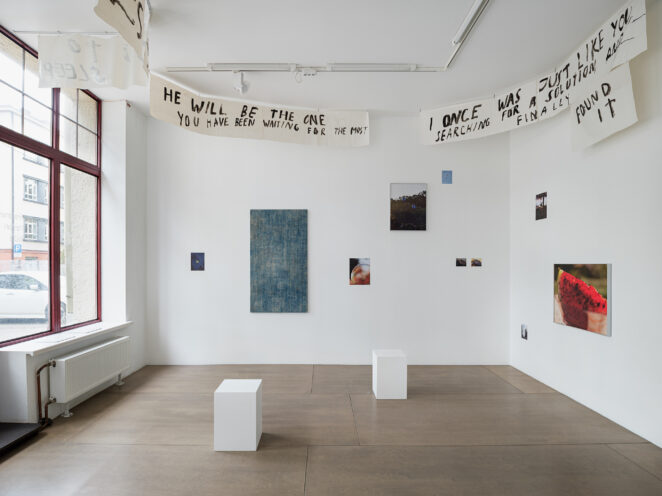
View from the Riga Photography Biennial 2024 exhibition ‘A Breaking Point, A Delicate Balancing Act’, RIXC Gallery. Photo: Ingus Bajārs
The exhibition features a site-specific installation by Lithuanian artist Ieva Rojūtė, unique cyanotypes exposed by moonlight by Danish photographer Albert Grøndahl, and software-generated photographic work by Canadian visual artist Benjamin Freedman. Curator: Paulius Petraitis (LT) Scenography: Pauls Rietums (LV)
From June 10 to June 23 Riga visitors can view the RPB 2024 outdoor project ‘The Apparent – Un/believable’ at Riga public transport stops. The Latvian Museum of Photography presents a look at a thematic selection from its collection, showing experiments by photographers from the first half of the 20th century who created illusory representations (and manipulations of the “copy of nature”). The works of the selected artists represent a variety of techniques – retouching, hand-colouring, montage and others – as well as experiments with the angle of the shot, or perspective, where the photographic depiction of the object on the plane is deformed.
Until June 27, the exhibition ‘Contemporary Histories of Photography I’ at the ISSP Gallery brings together several artists’ perspectives and interpretations on the process of writing a local history of photography. The new works engage in dialogue with photographers and phenomena spanning various periods. Kristīne Krauze-Slucka worked with the archive of Ina Stūre (1958-2006), a photographer active at the turn of the 1980s and 1990s, but largely overlooked today. Krauze Slucka’s work questions the “disappearance” of women from historical narratives and highlights Stūre’s expressive, staged images against the backdrop of the modest living conditions and mundane domesticity of the turbulent period. Meanwhile, Agate Tūna, driven by personal and artistic interests, traces the threads of paranormal and illusionist photography in Latvia, pushing the conventional boundaries of the photographic medium and its relationship with reality.
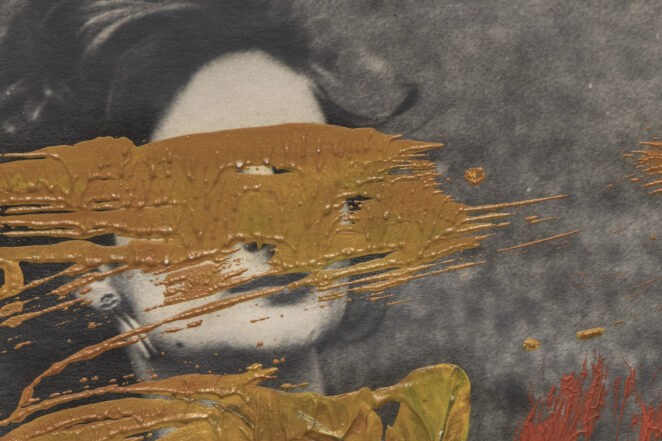
7. Kristīne Krauze-Slucka, ‘Untitled’, 1980s. From the archive of Ina Stūre, 2024
The second exhibition in the series, ‘Contemporary Histories of Photography II” (artists: Annemarija Gulbe, Konstantīns Žukovs) will be on display from July 5. Curator: Liāna Ivete Žilde (LV), Scenographer: Liene Pavlovska.
In the National Library of Latvia until RFB 2024 ending on display is the exhibition ‘Shape/Share Another World! Photomontage in Latvian Press in the Interwar Period’. In the mid-1920s, the popularity of photomontage in Europe was stimulated by German designer Jan Tschichold’s concept of New Typography, which called for radical changes in type design, text layout and the use of photomontage. In Latvia, one of the ardent supporters of this theory was artist Romans Suta. Furthermore, publishers were engaged in the exchange of news stories and images with press agencies from other countries, also receiving examples of photomontages for the production of international news. Thus, in keeping with contemporary trends, interest in photomontage also grew in Latvia. This is the first exhibition to present photographs from Latvian press publications of the 1920s–30s that were created using the photomontage technique.
Another exhibition in the National Library of Latvia – ‘Photo, Pencil, Scissors. Latvian Children’s Books with Photographs’ – will be on display from June 14. Curator for both exhibitions: Irēna Bužinska.
And in the Smilga Culture Space until June 30 open is the exhibition ‘Potato people’ by Renāte Feizaka and Klāvs Liepiņš. The Latvian artist duo, having made Iceland their home for over a decade, present their inaugural joint exhibition in Riga. The exhibition explores the tension between the inherited identities of growing up in 1990s Latvia—shaped by Christianity and the Soviet Union’s ideological legacy —and the evolution of a hybrid identity in a new cultural context. The artist tandem employs personal experiences and fictional characters to speculate on the theme, juxtaposing human inventions against the purest forms of human existence—nudity and natural cycles. Curator: Tīna Pētersone.
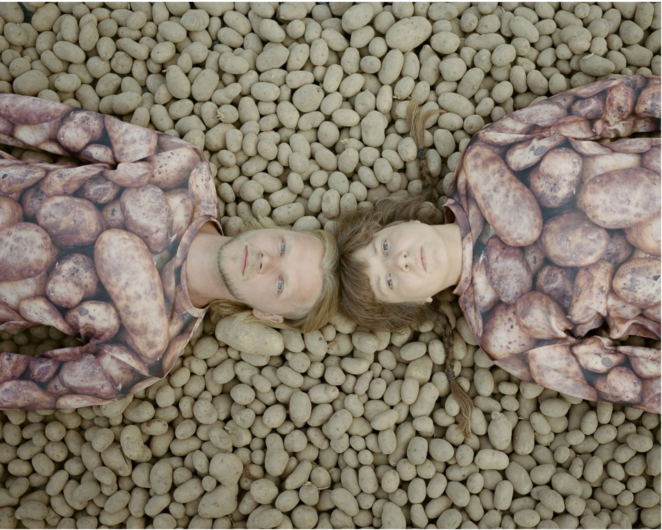
Renāte Feizaka un Klāvs Liepiņš, from the series ‘Potato People’, 2022
The Riga Photography Biennial is an international contemporary art event, focusing on the analysis of visual culture and artistic representation. The term ‘photography’ in the title of the biennial is used as an all-embracing concept encompassing a mixed range of artistic image-making practices that have continued to transform the lexicon of contemporary art in the 21st century.
Supporters and partners of Riga Photography Biennial 2024: State Culture Capital Foundation, Riga State City Council, Associations of Culture Institutions of Riga State City Council Exhibition Hall ‘Riga Art Space’, National Library of Latvia, Latvian Museum of Photography, Sigulda City Council, Cultural Centre ‘Siguldas devons’, RIXC Gallery, ISSP Gallery, Smilga Culture space, Office for Contemporary Art Norway (OKA), Nordic Council of Ministers’ Office in Latvia, British Council in Latvia, Icelandic Visual Arts Fund, Royal Norwegian Embassy in Riga, Danish Cultural Institute, Embassy of Finland in Riga, Estonian Embassy in Riga, Hibnerstudio, printing house ‘Adverts’, Valmiermuiža Craft Brewery, ‘Rixwell Hotels’, VPT Group, Street Level Photoworks, Northern Photographic Centre, Creative Scotland, Lithuanian Culture Council, Hope Scott Trust, Arterritory.com, Echo Gone Wrong, NOBA.
For more information about the Riga Photography Biennial:

